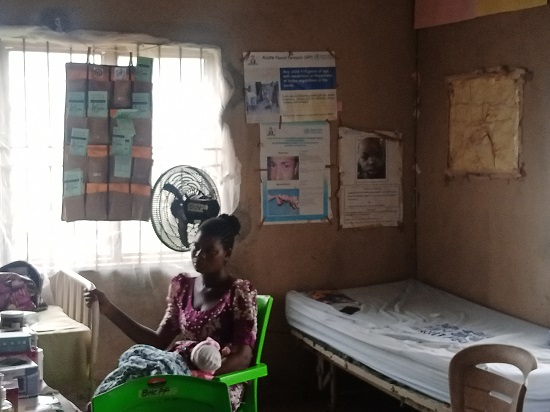Philomena Orji, a representative of the US Agency for International Development (USAID) in Nigeria, says creating a breastfeeding safe space for working mothers in organisations and institutions will lead to a productive workforce.
World Breastfeeding Week is observed in the first week of August every year.
The aim is to create awareness about the importance of breastfeeding for proper development of babies. This year, the theme for the week is “Let’s make breastfeeding and work, work”.
Speaking during the launch of the week in Bauchi on Wednesday, Orji said USAID is committed to assisting the state provide safe spaces for working mothers.
Advertisement
She said access to safe spaces would provide avenues for working mothers to commit and contribute to the productive workforce of the state as well as reduce the burden of diseases on children.
“USAID remains committed to supporting the Bauchi state government to provide safe space for working-class mothers,” she said.
“Providing breast milk to children in line with best practices is a way for our babies and productive workforce of the future.”
Advertisement
Aisha Mohammed, the wife of the state governor, encouraged breastfeeding mothers to adopt global health practices that would prevent childhood diseases.
She also encouraged women to embrace subsistence farming in their backyards to access a variety of food items for healthy mother and child care.
Rilwanu Mohammed, executive chairman of the state Primary Healthcare Development Agency (BSPHCDA), said Bauchi will continue to develop programmes that would showcase the nutritional and health benefits of breastfeeding.
UNICEF, WHO CALL ON WORKPLACES TO SUPPORT BREASTFEEDING MOTHERS
Advertisement
The United Nations Children’s Fund (UNICEF) and the World Health Organisation (WHO) have also called for a supportive environment at workplaces for working mothers.
In a statement on Tuesday, the organisations said support for nursing mothers in workplaces would help sustain and improve progress on breastfeeding rates globally.
They added that such family-friendly workplace policies like paid maternity leave, and breastfeeding breaks, benefit not only women but also employers.
“In the last 10 years, many countries have made significant progress to increase exclusive breastfeeding rates. Yet, even greater progress is possible when breastfeeding is protected and supported, particularly in the workplace.
Advertisement
“This World Breastfeeding Week, under its theme, ‘Let’s make breastfeeding at work, work’ – UNICEF and WHO are emphasising the need for greater breastfeeding support across all workplaces to sustain and improve progress on breastfeeding rates globally.
“In the last decade, the prevalence of exclusive breastfeeding has increased by a remarkable 10 percentage points, to 48 percent globally. Countries as diverse as Cote d’Ivoire, the Marshall Islands, the Philippines, Somalia and Vietnam have achieved large increases in breastfeeding rates, showing that progress is possible when breastfeeding is protected, promoted, and supported.
Advertisement
“However, to reach the global 2030 target of 70 percent, the barriers women and families face to achieve their breastfeeding goals must be addressed.
“Supportive workplaces are key. Evidence shows that while breastfeeding rates drop significantly for women when they return to work, that negative impact can be reversed when workplaces facilitate mothers to continue to breastfeed their babies.
Advertisement
“Family-friendly workplace policies — such as paid maternity leave, breastfeeding breaks, and a room where mothers can breastfeed or express milk — create an environment that benefits not only working women and their families but also employers.
“These policies generate economic returns by reducing maternity-related absenteeism, increasing the retention of female workers, and reducing the costs of hiring and training new staff,” the statement added.
Advertisement
The organisations further called on governments, donors, civil society groups, and the private sector to step up efforts to support friendly breastfeeding policies and investments.
Add a comment






